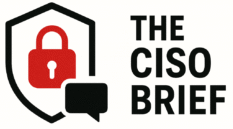Quick Takeaways
-
Lawsuit Filed: Clorox is suing Cognizant for a 2023 cyberattack that severely disrupted its production and incurred $380 million in losses.
-
Breach Details: The attack, attributed to the hacking group Scattered Spider, utilized social-engineering tactics to compromise Clorox’s IT infrastructure in August 2023.
-
Allegations Against Cognizant: Clorox accuses Cognizant of negligent security practices, claiming they improperly shared credentials, which contributed to the attack and delayed recovery efforts.
- Cognizant’s Defense: Cognizant counters that Clorox had inadequate internal cybersecurity measures and asserts that their responsibility was limited to help desk services, not overarching cybersecurity management.
Understanding the Fallout: Clorox’s Lawsuit Against Cognizant
Clorox recently filed a $380 million lawsuit against Cognizant, the company responsible for managing its IT help desk. This legal action arises from a significant cyberattack that occurred in August 2023, which severely disrupted Clorox’s production capabilities. The suit alleges that Cognizant improperly handled security measures, allowing hackers to gain access to crucial systems. Consequently, Clorox could not ship essential products, including household cleaners, for an extended period.
According to Clorox, Cognizant not only failed to protect its computer systems but also mishandled the response to the attack, leading to prolonged downtime. This situation highlights a wider concern in today’s cybersecurity landscape. The lawsuit emphasizes the urgent need for companies to ensure robust cybersecurity protocols. Businesses must understand that poor management and inadequate communication can result in severe financial and operational consequences.
Cybersecurity Challenges in a Digital Age
The hackers, identified as part of a group called Scattered Spider, utilized social-engineering techniques to exploit weaknesses in Clorox’s cybersecurity. Such tactics are prevalent in today’s cyber threats, targeting unsuspecting IT staff to gain valuable credentials. While Clorox focuses on Cognizant’s alleged failures, Cognizant argues that Clorox’s internal cybersecurity measures were insufficient. They criticize Clorox for outsourcing only limited IT support while failing to invest adequately in their own cybersecurity infrastructure.
This incident serves as a cautionary tale for all organizations. Engaging an IT service provider does not absolve companies of their responsibility to maintain strong cybersecurity. As threats evolve, businesses must adopt a comprehensive strategy that combines internal security measures with third-party services. Only then can they truly protect against the ever-growing landscape of cyber risks. The outcome of this lawsuit may set important precedents, urging businesses to prioritize cybersecurity as an integral part of their operational framework.
Stay Ahead with the Latest Tech Trends
Explore the future of technology with our detailed insights on Artificial Intelligence.
Access comprehensive resources on technology by visiting Wikipedia.
Cybersecurity-V1

